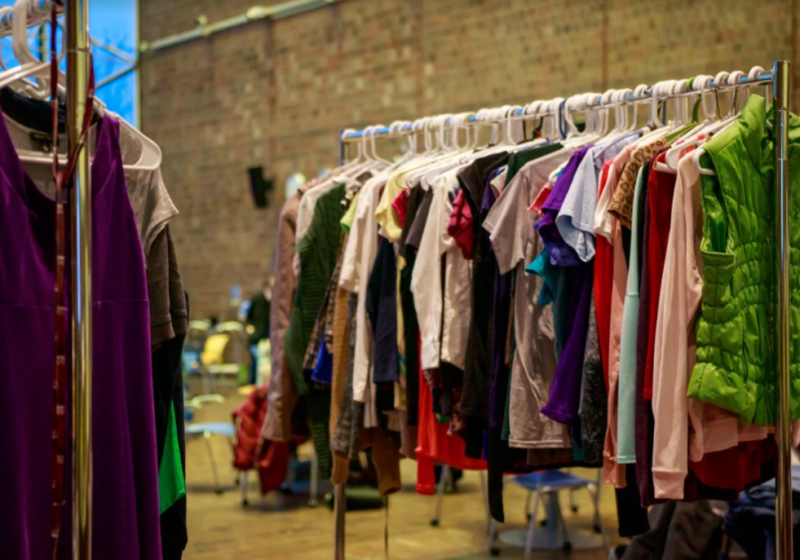In the modern era, it’s an unfortunate expectation that industries pollute. However, it may come as a surprise that the fashion industry is one of the most polluting industries in the world, especially when it comes to carbon emissions and water usage. The reality is frightening: Clothing production releases 10% of worldwide carbon emissions, contributes to plastic pollution, and releases polyester microfibers when washed in the ocean. Although cotton is often offered as a more sustainable material, growing cotton and making cotton clothing requires a significant amount of water. One cotton shirt requires 2,700 liters of water to make, which is enough water for one person to drink eight cups per day for 2.5 years.
Ever-evolving fashion trends entice consumers into buying new hip pieces and getting rid of old clothing that’s no longer considered fashionable. However, with trends moving at breakneck speed, we’re buying more clothes and wearing them for less time.
Sustainable fashion has been on the rise in recent years, but it’s undeniable that sustainable companies like Reformation, Girlfriend Collective, and Organic Basics are out of most people’s price ranges. Fast-fashion clothing companies have the advantage of low prices, and when it comes down to it, most people will choose low prices over sustainability, especially when they’re not directly dealing with the impacts of clothing pollution. So, how can people buy sustainable clothing when it’s not affordable? They can’t — but they don’t have to.
There are other ways to practice sustainable habits when it comes to fashion. Of course, the best way to limit waste is to not buy any new clothes. For example, saving up to buy higher quality, more sustainable garments and then wearing them for many years is healthier for the environment and your wallet. A similar resolution is owning some basic garments and a few statement pieces in what’s called a “capsule wardrobe.” You can combine your pieces in different ways to get a variety of new outfits that still feel stylish and don’t generate waste.
Buying secondhand clothing is also a great way to be sustainable at a lower cost. It should be noted that there is some controversy over the ethics of thrifting, so look into ethical thrifting before you make a trip to your local thrift store. Thrifting is best for people who can’t afford to buy clothing elsewhere, so if you can afford it, try buying secondhand clothing in another format. Consignment stores are generally a little more expensive, but they’re also more curated (and still sustainable). Also, new websites and apps like Depop and Mercari allow consumers to buy specific items of secondhand clothing. I am a huge advocate for these websites because they are my go-to if I need new clothes. Even if I need an essential item, such as a new raincoat, I try to buy secondhand from one of those websites before looking at buying something new. They can be hard to navigate at first, but they also offer a wide selection for a price more comparable to consignment stores. In the end, the time spent pays off. You save money, it’s more sustainable than buying new, and you’re more likely to find something cool and unique.
There is something to be said about staying stylish and sustainable, but do we even have to follow trends? With TV and the Internet, advertisements are everywhere. I feel constantly surrounded by ads (many of which are curated to me) that promote clothing. Although the clothing is always very cute, I try to have some willpower and resist buying it. But when every few posts on your Instagram feed is an Urban Outfitters ad, it’s hard to.
With the rise of social media, the pressure to “fit in” has risen as well. We feel like we need to dress a certain way so that people will like us, leading to trends feeling even more important. And of course, trends are the pinnacle of unsustainability. Take jeans, for example. In the early 2000s, low rise was in, then skinny jeans, and now mom jeans, lowrise jeans (again), and maybe even bell-bottoms. It’s hard to keep up. But, honestly, you don’t have to. Wearing what makes you feel confident will make you look good, and the earth will thank you and your skinny jeans for their service.




